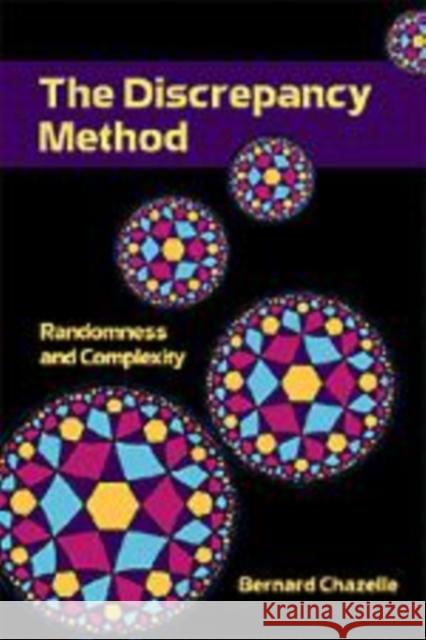The Discrepancy Method: Randomness and Complexity » książka
The Discrepancy Method: Randomness and Complexity
ISBN-13: 9780521770934 / Angielski / Twarda / 2000 / 494 str.
The discrepancy method has produced the most fruitful line of attack on a pivotal computer science question: What is the computational power of random bits? It has also played a major role in recent developments in complexity theory. This book tells the story of the discrepancy method in a few succinct independent vignettes. The chapters explore such topics as communication complexity, pseudo-randomness, rapidly mixing Markov chains, points on a sphere, derandomization, convex hulls and Voronoi diagrams, linear programming, geometric sampling and VC-dimension theory, minimum spanning trees, circuit complexity, and multidimensional searching. The mathematical treatment is thorough and self-contained, with minimal prerequisites. More information can be found on the book's home page at http: //www.cs.princeton.edu/ chazelle/book.html.











